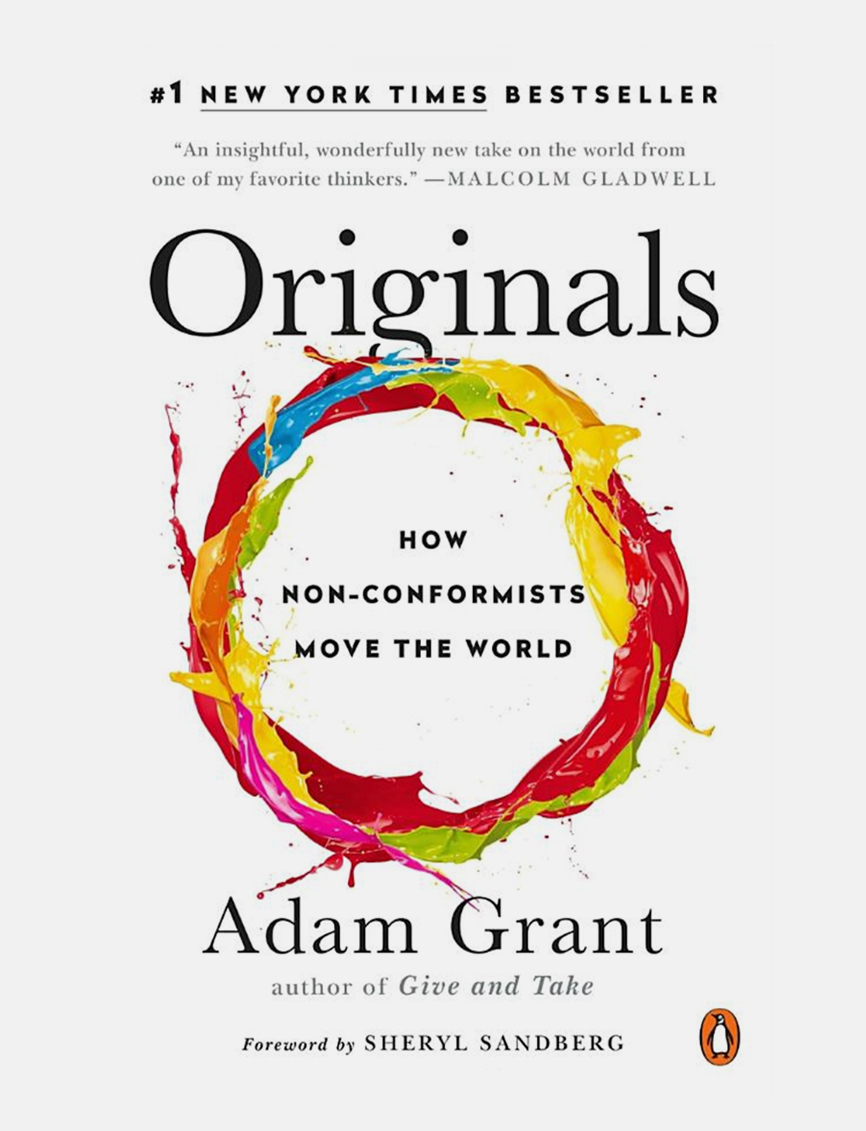
Saved by Jennifer Baez
Originals – Adam Grant

Saved by Jennifer Baez
Ultimately, the people who choose to champion originality a ones who propel us forward. After spending years studying them and interacting with them, I am struck that their inner experiences a not any different from our own. They feel the same fear, the same doubt, as the rest of us. What sets them apart is that they take action anyway. They know
... See more“The reasonable man adapts himself to the world; the unreasonable one persists in trying to adapt the world to himself. Therefore all progress depends on the unreasonable man."
George Bernard Shaw (Page 1)
People who suffer the most from a given state of affairs are paradoxically the least likely to question, challenge, reject, or change it." To explain this peculiar phenomenon, Jost's team developed a theory of system justification. Its core idea is that people are motivated to rationalize the status quo as legitimate-even if it goes directly
... See moreIn the face of uncertainty, our first instinct is often to reject novelty, looking for reasons why unfamiliar concepts might fail. When managers vet novel ideas, they're in an evaluative mindset. To protect themselves against the risks of a bad bet, they compare the new notion on the table to templates of ideas that have succeeded in the past.
... See moreWhen we bemoan the lack of originality in the world, we blame it on the absence of creativity. If only people could generate more novel ideas, we'd all be better off. But in reality, the biggest barrier to originality is not idea generation-it's idea selection. In one analysis, when over two hundred people dreamed up more than a thousand ideas for
... See moreBy delaying the task of fleshing out and firming up the speech, King allowed Jones to benefit from the Zeigarnik effect. In 1927, Russian psychologist Bluma Zeigarnik demonstrated that people have a better memory for incomplete than complete tasks. (Page 99)
Social scientists have long known that we tend to be overconfident when we evaluate ourselves. Here are some highlights of their findings: High school seniors: 70 percent report that they have "above average” leadership skills, compared with 2 percent "below average"; in the ability to get along with others, 25 percent rate themselves in the top 1
... See more